May’s been a weird month for those who have worked in the conservation field for any length of time. Not only has it seen an unprecedented attack on America’s public lands by right-wing federal lawmakers who want to help the Trump administration use the country’s unique inventory of publicly owned acreage to fund tax cuts for the wealthiest among us, it’s seen some previously unexpected pushback from other Republicans who really don’t have a leg to stand on when it comes to their conservation record.
Earlier this month, Trump sycophants Mark Amodei and Celeste Maloy, Republican members of the U.S. House of Representatives from Nevada and Utah, respectively, were able to push through a last-minute amendment to a federal spending bill that would allow the sale of hundreds of thousands of acres of public lands, with the receipts going to the feds to presumably pay for Trump’s wildly skewed tax cuts that largely benefit the richest among us.
Then, the morning after the sneaky amendment made its way into the spending bill, a group of bipartisan lawmakers announced the formation of the Public Lands Caucus. During the event announcing the new caucus, a handful of prominent Republicans openly supported the American public lands system and were very clear about the need to keep “public lands in public hands.”
Among those Republicans standing up against the effort to divest of America’s public lands bounty? How about Ryan Zinke, Interior Secretary during Trump’s first administration who bent over backwards for the energy and mining sectors, and all but gave industry the keys to the castle when it came to leasing and development of the nation’s shared national treasure. Zinke is joined by six other Republicans in the caucus, including U.S. Rep. Chuck Edwards of North Carolina who has a 6-percent rating with the League of Conservation Voters. This auspicious duo is joined by Rep. Jen Kiggans, a Republican from Virginia who scores a measly 13 percent on the LCV scale; Rep. Dan Newhouse, R-Washington, 7 percent; and Rep. Juan Ciscomani, R-Arizona, 10 percent; and Mike Simpson, R-Idaho, 10 percent; and Rep. Troy Downing a Republican from Montana who has not served long enough in the House to record a score.
Simpson appears to be the best of the bunch, and that’s because he’s always championed public lands and has shown more courage on northwest salmon recovery than any Republican ever, and, frankly, any Democrat since Cecil Andrus.
We should forgive the conservation establishment from doing a righteous double-take and what was certainly a collective, “WTF?” moment when the caucus was established. But, it doesn’t stop there. Earlier in May, former Georgia Gov. Sonny Perdue — who was also Trump’s first Secretary of Agriculture and one of the loudest voices against the Waters of the U.S. Rule protecting the integrity of intermittent and headwater streams — came out and publicly supported the application for the Okefenokee National Wildlife Refuge to achieve UNESCO World Heritage Site status. This means Perdue, who’s now the chancellor of Georgia’s higher-education board, has done more for the East’s largest wilderness area than has Gov. Brian Kemp, who hasn’t lifted a finger to defend the swamp from an existential threat to mine heavy sands near its eastern border.
WTF, indeed.
And, not to look a gift horse in the mouth, but what should those in the conservation world really make of these striking moves from notoriously anti-environmental lawmakers and officials? Perhaps the best perspective is the most optimistic. Maybe, just maybe, after watching Trump deliver executive order after executive order to open the country’s last, best wild country to the whims of the drill bit and the mining shovel, and now just blatantly announcing the intent to just sell them outright, the bile is even too much for some Republicans to swallow. Or maybe, as the saying goes around the family dinner table as jaded parents caution their kids about their loving and generous grandmother, “That’s not the lady I grew up with. That’s some old lady who’s just trying to get into heaven.”
Regardless, the support for the last wild vestiges of America from traditionally luke-warm lawmakers and former Trump toadies is welcome. But they’ll have to forgive the rest of us who look at that football and really want to kick it, knowing full well that it’s just as likely, if not moreso, that Lucy will pull that ball back, and all of us Charlie Browns will go tumbling to the turf.
Time will tell, and actions will, of course, speak louder than jargony garbage at a news conference. But some of America’s most-treasured wild landscapes stand naked and unprotected before Trump’s second administration. And, as we’ve seen in recent years, the Democrats can't do much on their own. Let’s hope the Public Lands Caucus has more bite than bluster. More importantly, let’s hope that more Republicans find their backbone and stand up for everyday Americans who cherish their one, true birthright: our public lands.
An earlier version of this article included an error in the names of some of the listed lawmakers. These errors have since been corrected.




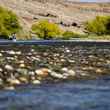

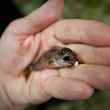
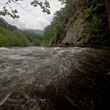
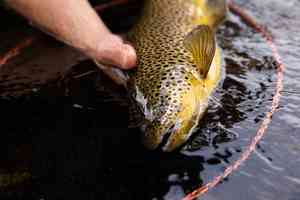

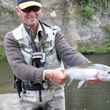



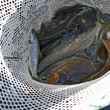









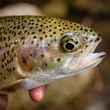
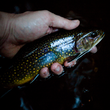


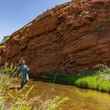


Comments
Geoff Roznak replied on Permalink
I'm always disappointed when Hatch Magazine - one of my favorite reads - chooses to publish political content of this nature.
Chris Hunt could have written this piece without any of the invective, insults and attempts to anger and provoke that fuel division in the fly fishing community and the conservation arena in general.
There is no place for this kind "journalism" in the world of conservation - all it does, regardless of source and orientation, is risk alienating a considerable portion of our support. I stopped reading by the third paragraph, disgusted with the agenda pushing, and I'm sure others quit long before that...which is unfortunate because the underlying message is important.
We have to work with politicians to achieve our goals; we cannot risk aligning with them. Mr. Hunt needs to seriously consider if he wishes to advocate for conservation, or beat a political drum...and if he chooses the latter, the Editorial staff should decline to publish it.
dipshit replied on Permalink
Thank you Mr. Roznak for your comments and viewpoints, I share the sentiments and concerns about any of Mr. Hunt's articles. I saw the title, look who was the author, and went straight to the comments.
Hatch Magazine can be a great resource for my fly fishing knowledge, and I have vacillated paying for a subscription, but articles like this kill it for me. I find myself looking at my portal and URL and wondering if I ended up on Time Magazine or Newsweek feed.
Again thank you Geoff for candidness, while it may appear that there are only you and me who are aligned, I KNOW many passionate fly fisherman who feel the same way.
TC Thompson replied on Permalink
well said
Chad Shmukler replied on Permalink
Geoff Roznak replied on Permalink
I understand all of what you wrote, but it's dancing around what I wrote about:
Bringing politics into conservation is the kiss of death.
Regardless of our personal feelings about this politician or that one, regardless of our feelings about one political group or the other...We cannot allow the damage aligning with any them will do to our efforts.
Emotional rants do nothing to advance our cause and do considerable harm.
We should be mature enough to recognize that while we cannot control the actions of any of them, we can choose our reaction to them - at least our public reaction.
For clarity: I do not support the sale of public lands in any way.
...but going off on an agenda driven rant is exactly what politicians and media want us to do, to keep us angry and divided - the finger pointing and invective they can generate among us, the better.
Together, we are strong and have considerable influence - divided, we are splinters that can can easily be dealt with.
Chad Shmukler replied on Permalink
Geoff,
I appreciate the sentiment and believe in building unity across the spectrum in the U.S., though I'd argue that unity can most effectively be built across class and cultural lines rather than traditional political ones.
That said, re: "Bringing politics into conservation is the kiss of death," I suppose I'd pose a question —
How does one avoid it?
Like it or not, virtually all of the laws, policies, rules, and regulations that determine to what degree the U.S. is prioritizing (or failing to) conservation are determined through the political process. At the federal, state, and local levels, it is our elected representatives that craft the laws and rules and make the decisions that impact our air, water, wild places, wild species, and so on.
How do you talk about the ESA or the CAA or the CWA or the decision whether to lease public lands for fossil fuel extraction without talking about the politicians making those decisions? How do you talk about the sale of public lands without talking about the politicians attempting to sell them off? How do we talk about environmental regulations that protect our rivers and streams without talking about the politicians attempting to gut them?
This isn't an attempt to be provocative. It's an honest question.
Geoff Roznak replied on Permalink
Chad,
The answer to "How does one avoid it?" is - I believe - simple:
We have to work with politicians to achieve our goals. That's a given.
We do not have to - and should not, IMO - align with any of the various political groups, and certainly not with individuals...nor should be be seen as actively in opposition to them.
The risks are far to great for the extremely limited benefits.
If we go back and look at that editorial, it could easily have been written with out any reference to people, parties, or political beliefs and simply addressed the considerable negatives involved in any sort of journey down the very slippery slope of selling off public land.
Irreversible damage has already been done to the term "environmentalist" by those who politicized the ideas and used them for their own benefit. We should fight like cornered tigers to avoid the same thing happening to "conservation."
I help run a good sized chapter of one of the national conservation/habitat groups here in NW WI. We have a strict and vigorous "no politics" rule...and it matters.
Our support comes from all over the political and social spectrum. People from all groups are welcome at our events, and often sit right next to each other...or participate together...and there's never an issue.
Geoff Roznak replied on Permalink
For an example of how to strongly disagree with the selling of public land without dragging politics into things, or using invective and insults, I recommend Kirk Deeter's well written piece here:
https://www.flylab.fish/angling-trade/advocating-for-public-lands-and-wa...
Geoff Roznak replied on Permalink
So here's the good news:
Our system worked the way it should have. The sneaky, last minute addition of the amendment to sell off public land ran into a wall of public opinion that was carried to our representatives...and the amendment was removed.
https://www.outdoorlife.com/conservation/public-land-sales-amendment-wit...
It's worth noting who had it removed.
Kerry replied on Permalink
Not one word about the Republican politicians who all voted unanimously in the House to pass the "big, beautiful budget bill" that will have disastrous effects on trout habitat. You Republican trout fishermen who are offended by the political overtones of conservationist articles need to find another hobby. Because you continue to elect people who are voting for, and profiting by the eradication of a sustainable environment. Whether it's the extraction industries that finance their campaigns or the development interests that are well-represented in their caucus, the people who fund the Republican Party have their attention and their allegiance. Removing any mention of climate change from all federal websites? Are you kidding me? In addition to gutting the Park Service, NOAA, EPA, and the Weather Service? Take up golf. You'll like the nitrogen fertilizer and all the water it's sucking out of aquifers on desert courses.
Pages